What level are you?
Page updated: 24/06/2025
What level are you?
You can take a look at the Authorities' language levels below to discover your language level.
Alternatively, if you are unsure or would like an informal assessment, please complete this booking form.
Take a look at various pathways available to help your reach the next level. Contact Kelly Morris, Welsh Language Learning and Development Adviser to discuss your options further.
Listening and Speaking:
- Pronounce place names and personal names correctly.
- Greet customers at reception or on the phone.
- Open and close a conversation.
Reading:
- Understand short text about a familiar topic when it is communicated in plain language, e.g. basic signs, simple instructions, includes agendas.
Writing:
- Write personal names, place names, job titles and names of council departments.
Listening and Speaking:
- Understand the core conversation.
- Receive and understand simple messages on normal patterns, e.g. time and place of a meeting, request to talk with someone.
- Convey basic information and simple instructions.
- Open and close conversations and meetings bilingually.
Reading:
- Understand most short reports and instructions within the expertise of work, if there is sufficient time allowed.
Writing:
- Produce a simple short message on paper or email for a colleague within the Council or a familiar colleague outside the Council.
Listening and Speaking:
- Understand and participate in most normal day-to-day conversations in the office.
- Offer advice to the general public on issues relating to the post. Referring to specialised or technical terms in English.
- Contribute to a meeting or a presentation on general issues relating to the post; referring to specialised or technical terms in English.
Reading:
- Understand most of the reports, documents and correspondence that would be expected to be discussed in the normal course of work.
Writing:
- Prepare informal messages and reports for internal use.
Listening and Speaking:
- Contribute effectively in internal and external meetings in the context of the work subject.
- Understand differences in tone and dialect.
- Argue for and against a particular case.
- Chair meetings and answer questions confidently
Reading:
- Understand formal correspondence and reports.
Writing:
- Produce business correspondence, short reports, e-mails and promotional literature with editing assistance.
Listening and Speaking:
- Contribute fluently and confidently with regard to all aspects of daily work, including negotiating and advising on technical, specialised or sensitive areas.
- Contribute to meetings and provide presentations fluently and confidently.
Reading:
- Understand reports, documents and articles linked to the normal course of work, including complex concepts expressed in convoluted language.
Writing:
- Produce business correspondence, short reports, e-mails and promotional literature to an acceptable level with the aid of standard language tools.
- Draw up detailed notes while taking a full part in the meeting.
Learning and Development
STEP Programme
Coaching & Mentoring (1)
Transformation Project
Staff Engagement (Survey) Facilitator
Shadowing
Neurodiversity
Supporting your digital skills
- Coleg Sir Gar Courses
- Digital Skills for Business qualification with Gower College Swansea
- Digital Courses
- Digital Skills Levelled Framework
Welsh Language
Domestic Abuse and Sexual Violence - Learning and Development
Hybrid Working Resources
- Hybrid Working Courses
- Charing a hybrid meeting
- How Do You Participate in a Hybrid Meeting
- Hybrid Meeting - Pros and Cons
Corporate Learning Opportunities
Social Care Wales Workforce Development Programme [SCWWDP]
- Active Offer
- Assessment & Care Planning
- Community Induction Program
- Core Training
- Dementia
- Individuals Who Use Services and Carers
- Leadership and Management
- Mental Health
- Social Work Best Practice
- Qualifications
FAQs
More from Learning and Development
